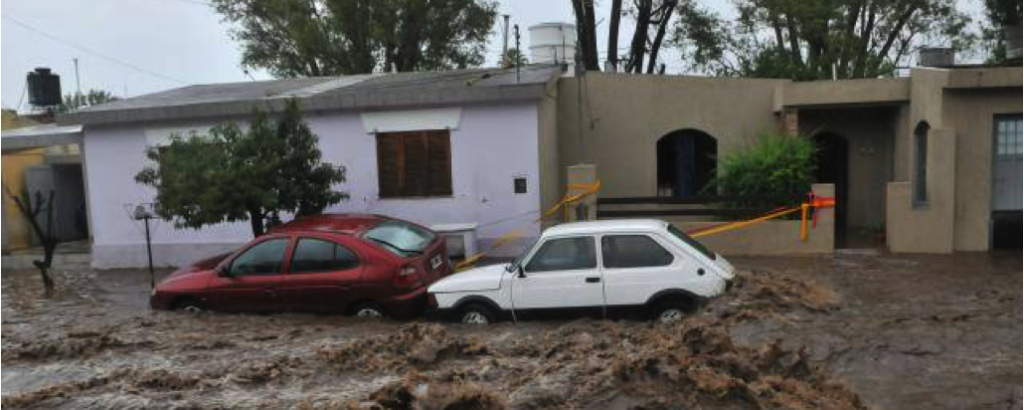The Church, the Gospel and Social Action
In March of this year our province was hit by severe flooding. Highway bridges were washed away and the people from our congregation in Jesus Maria were cut off for a time. Things were worse for some of the members of our congregation in Saldán. One family lives in Unquillo, a town in the foothill of the Sierras de Córdoba where a torrent of water washed away houses, cars, and seven people who drowned. Pablo and Ornela, a couple from the church that lives in the area, stayed out of danger, but their store was flooded with mud and water.
The day of the flood I struggled to get news about our people. Phone lines were out and roads were cut. When I finally got some information I found out one of our deacons, Daniel Pastor (yes, Señor Pastor is a deacon), had already made it in and was organizing a cleanup operation. University students and others from our church shoveled the mud out of Pablo and Ornela’s business. When they were done, they did the same for the businesses on either side.
Gospel or Social Action?
The flooding and the response of our church brought to mind debates from my college years about the proper relation between gospel preaching and social action. Back in the 1980s, many of my peers were wary of falling into the trap of preaching a social gospel. Over the years however, many called for a more “holistic” approach to ministry. Some repeated the trope that a poor person couldn’t possibly be receptive to the gospel with an empty belly.
The discussion has advanced considerably since those days. I think, most pastors or missionaries in my current peer group would now reject an either/or position. At the same time, most I think, would argue that the priority must rest on the preaching of the cross. As important as it might be to meet people’s physical needs, it is infinitely more important to reach them with the message of the gospel.
Non-governmental Organization or Churches?
Raising missionary funds has always been a challenge. Over the last several years I have had with growing frequency the experience of discovering that many Christians are interested in social projects that provide water, or food, or literacy training to needy communities. At the same time, eyes often glaze over a bit if they are challenged to support things like church planting or theological education for national pastors.
The sad irony of this situation is illustrated by the efforts of our congregations following the floods earlier this year. To put it bluntly, Pablo and Ornela and their neighbors, were not helped by an NGO.
Now, I know there is a need for Christian NGOs. The individual local church is not equipped to deal with a massive famine, for example. Good NGOs become a channel for individual Christians and local congregations when specialized expertise is required. But even here, most Christian NGOs would agree that effectiveness requires an open feedback loop between the NGO and local churches.
However, while there is a need for the specialized expertise of large NGOs, a gospel-driven local church excels at responding to a broad range of local needs on a smaller scale. The people who responded to the floods were not experts at disaster relief, but they responded well, and have since moved on to meet other needs. They visit the sick, care for the elderly, volunteer at orphanages, work in the prisons, and many other ministries. This doesn’t take into account the many hours they dedicate to more overtly church-oriented ministries such as evangelism, discipleship, small group leadership, etc.
As counter-intuitive as it might seem, I believe that planting a gospel-driven local church provides the most effective social program for needy communities.

